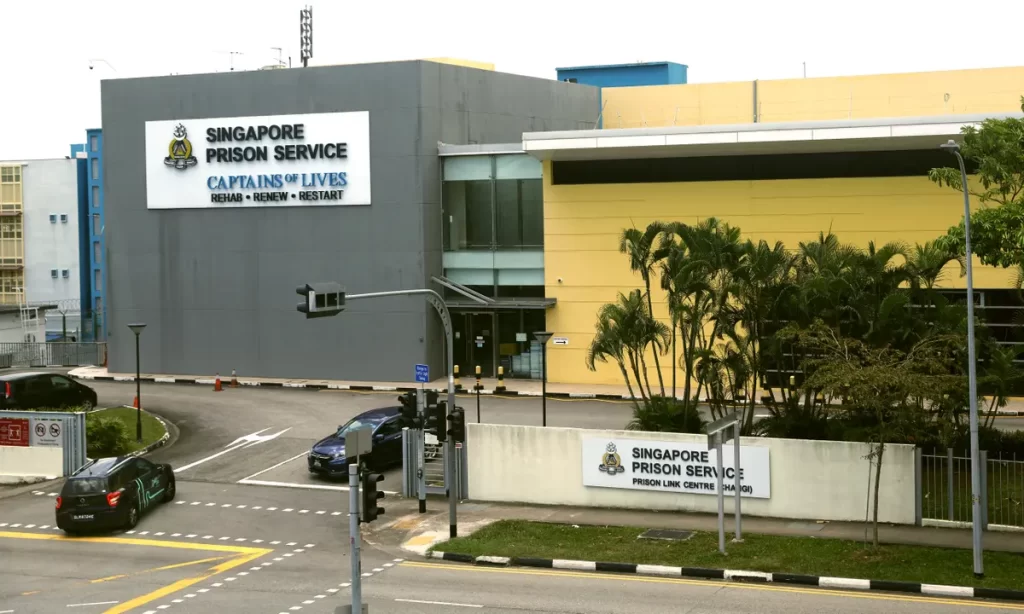Human rights activists claim Singapore is about to execute Saridewi Djamani, a Singaporean woman the first woman to be executed in over 20 years. Saridewi Djamani, was found guilty of trafficking 30g of heroin in 2018.
She will be the 15th drug offender to be executed since March 2022, following fellow Singaporean Mohd Aziz bin Hussain.
Singapore has some of the strictest anti-drug regulations in the world, which it claims are vital to protect society.
Aziz was found guilty of smuggling 50g of heroin. Singapore legislation allows for the death penalty for trafficking more than 15g of heroin or 500g of cannabis.
The Central Narcotics Bureau (CNB) of Singapore stated that Aziz was given “full due process” and that his appeal against his conviction and sentence was dismissed in 2018.
Tangaraju Suppiah, another Singaporean, was hanged in April for trafficking 1kg of cannabis that he never touched. Authorities claim he coordinated the deal over the phone. When the BBC approached the CNB, they declined to comment on Saridewi Djamani’s case.
British entrepreneur Sir Richard Branson has once again chastised Singapore for its executions, claiming that the death penalty is ineffective as a deterrence to crime. “Small-scale drug traffickers need help,” Mr Branson remarked on Twitter, adding that it was not too late to save Saridewi Djamani’s death.
According to the Transformative Justice Collective, a Singapore-based human rights organisation, she is one of two women on death row in Singapore. According to the group, she will be the city-state’s first female execution since hairstylist Yen May Woen in 2004. Yen was also charged with cocaine trafficking.
Saridewi stated during her trial that she was stockpiling heroin for personal use during the Islamic fasting month.
While she did not deny selling drugs such as heroin and methamphetamine from her flat, judge See Kee Oon remarked that she understated the scale of such operations.
Authorities believe that stringent drug laws help preserve Singapore one of the safest locations in the world, and that capital punishment for drug offences has widespread popular support.
Singapore’s death penalty argued
“There is no evidence that the death penalty has a unique deterrent effect or has any impact on the use and availability of drugs,” said Chiara Sangiorgio of Amnesty International in a statement.
“The only message that these executions send is that Singapore’s government is willing to once again defy international safeguards on the use of the death penalty,” she said.
Singapore has some of the strictest drug laws in the world. The country takes a tough stance on drug offenses to maintain its low crime rate and public safety. Here are some key points regarding Singapore’s drug laws:
1. **Zero Tolerance**: Singapore has a zero-tolerance policy towards drug offenses. Possession, consumption, trafficking, or manufacturing of even small amounts of illegal drugs can result in severe penalties, including imprisonment and corporal punishment.
2. **Mandatory Death Penalty**: Certain drug offenses, such as trafficking or manufacturing large quantities of specific controlled substances, can carry a mandatory death penalty in Singapore. The death penalty is carried out by hanging.
3. **Controlled Substances**: Singapore has a list of controlled substances that includes various drugs and their derivatives. This list is regularly updated by the Central Narcotics Bureau (CNB).
4. **Possession**: Merely being caught with illegal drugs in your possession can lead to significant penalties, including imprisonment. The specific punishment depends on the type and quantity of the drug.
5. **Trafficking**: Drug trafficking is taken extremely seriously, and those convicted can face the death penalty, even for relatively small quantities of certain drugs.
6. **Consumption Abroad**: Even if a Singaporean citizen is caught using illegal drugs in another country where it might be legal, they can still face legal consequences upon returning to Singapore.
7. **Border Control**: Singapore has stringent measures in place at its borders to prevent drug smuggling and trafficking.
8. **Medical Exceptions**: There are some limited medical exceptions for specific drugs under strict conditions and controls.
It’s essential to understand that laws may change, and I don’t have access to real-time information. Therefore, I highly recommend checking with official sources, such as Singaporean government websites or legal professionals, to get the most up-to-date information on Singapore’s drug laws. Also, remember that breaking any country’s drug laws can lead to severe consequences, including imprisonment, fines, and even the death penalty, so it’s crucial to respect and adhere to local laws and regulations.





